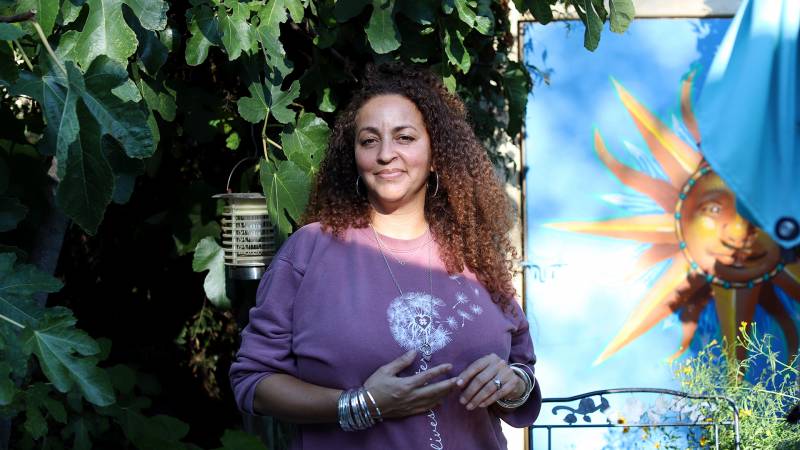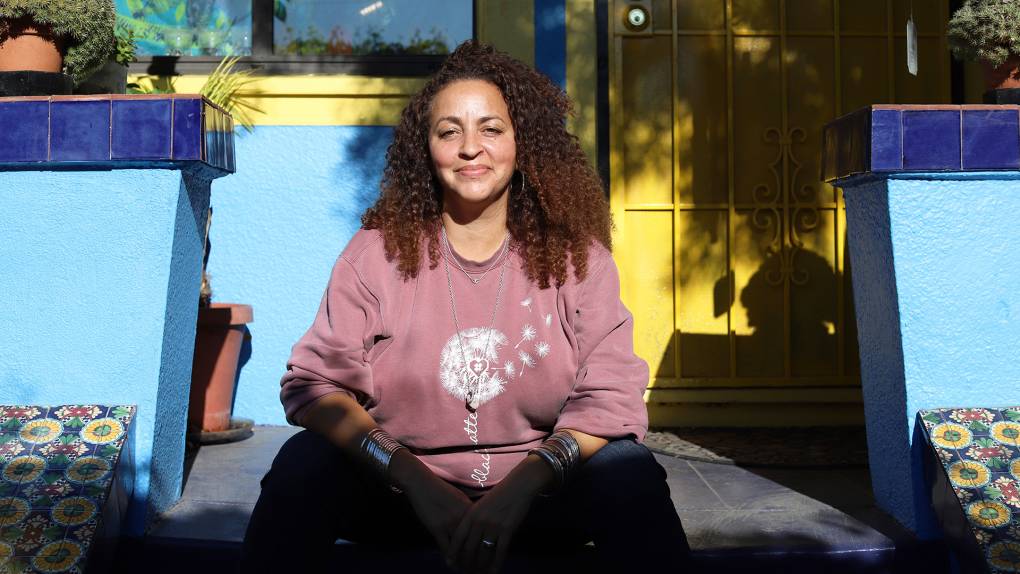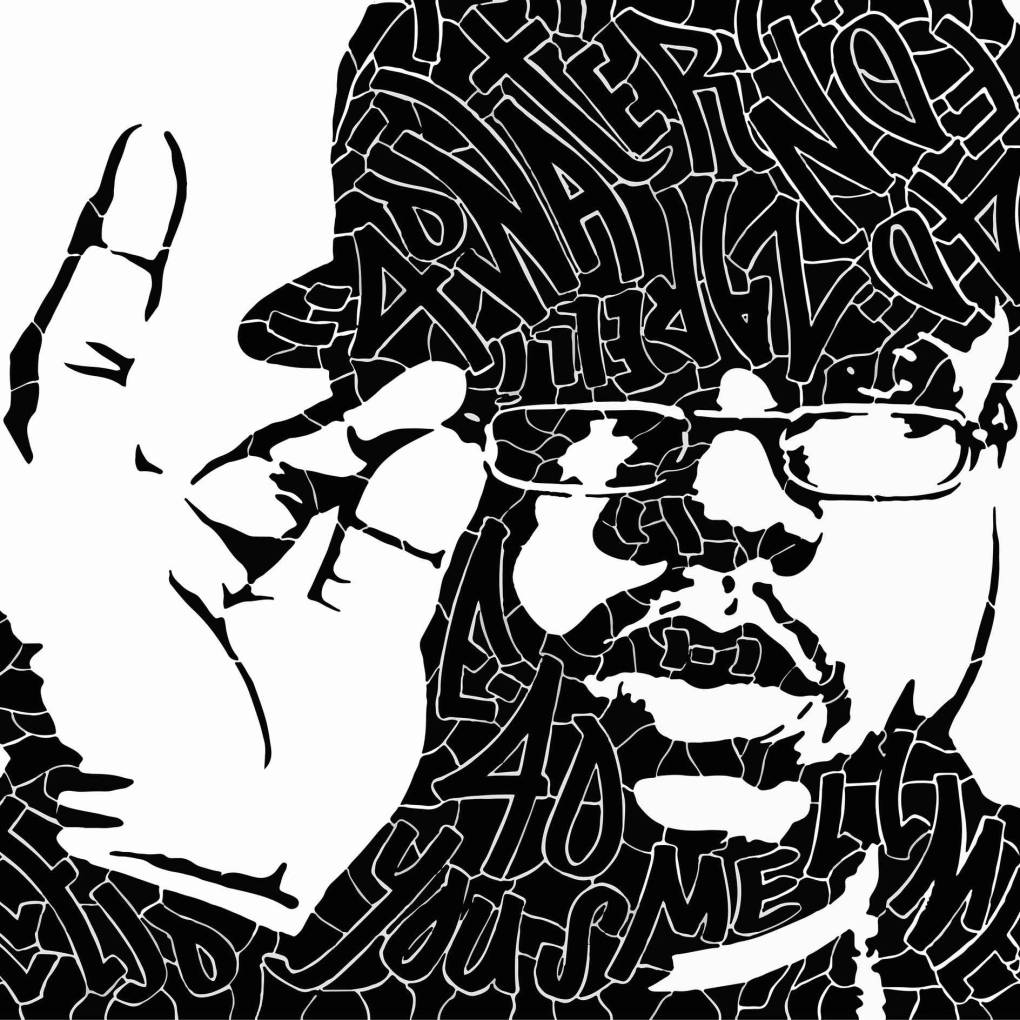This interview has been edited for length and clarity.
BRIAN WATT: This celebration of Additional Love Month is inspired in part by your latest work, which draws on the writings of bell hooks. Tell me more about that.
MYSTIC: [My album] Dreaming in Cursive: The Girl Who Loved Sparklers is what I call my healed Black woman music. When I first started creating hip-hop, when I was 16, I was, what I call, a broken Black girl, having experienced sexual assault and just the kind of in and outs of daily life in the ’90s in Oakland. With this album, I was really intentional about wanting to create art and sound and visuals that are about affirmation, that are about love.
And so bell hooks, in her book All About Love, which I encourage everyone to read multiple times across our lifetimes, it’s deeply striking to me because she’s exploring and examining love in a variety of different contexts, using her personal experiences, but also focusing on community, spirituality, on the connections between us. And even in the first chapter on clarity, she’s talking about our need to collectively define what does love mean. Love is nurturing and care, and it is in opposition to harm and to exploitation.
My producer told me you almost called the album Love Songs.
I wanted to call it that because every single song on the album is a love song, and whether it’s romantic or [like] in the song, “Here Alive,” I start off talking to young people and children around the world who may be living in slums, who are living lives in which we are often not valorized as people of color. And then I go on to speak to men and folks who are incarcerated, and then I go on and speak to my sisters and to women who have been oppressed and violated in the world.
But in saying “Here, Alive,” we need you here, alive, keep pushing on, it’s about that love that collectively we can move through this world in love with each other.
So what is it about the experience of writing love songs?
I don’t think about them necessarily as far as love songs. They’re all love songs, right? But depending on what I’m writing, I’m not necessarily sitting down and going, okay, I’m going to write a romantic love song right now, or I’m going to write a love song for children or for the planet. And very often, as you said, these things are kind of mixed together in one piece of one piece of art. But, you know, I listen to the music, the production, and what does the music touch in my heart and in my spirit that opens up that story within me that needs to be told.
You grew up in Oakland. You live there now. What has the city taught you about love and how has it influenced your music?
My mother moved me to Oakland [in] ninth grade, summer. I was exposed to this really profound depth of sociopolitical thought that is a running thread in the community of Oakland, where the Black Panthers and others took it upon themselves to try to feed our communities and liberate our people and liberate our communities. That’s love. Love is liberation, right?
Oakland taught me what it means to be devoted to your community, to be devoted to the alliances that can be made across physical borders of neighborhoods and ethnicities and races, and that we can be together. And there’s this feeling in Oakland, too, because so many families migrated from the South that is kind of like this relaxed, soothing place to be with this thriving, thriving life. And so it just it continues to inspire me everyday because there’s also such deep inequality.
It was also a beautiful time in hip-hop in Oakland. We were creating culture. At this time, we’ve got Souls of Mischief, we’ve got E-40 and The Click, and independent labels. A-plus from Souls of Mischief, his mom lived across the street from my mom, so I got to come up with Hieroglyphics and learn to freestyle with them.




